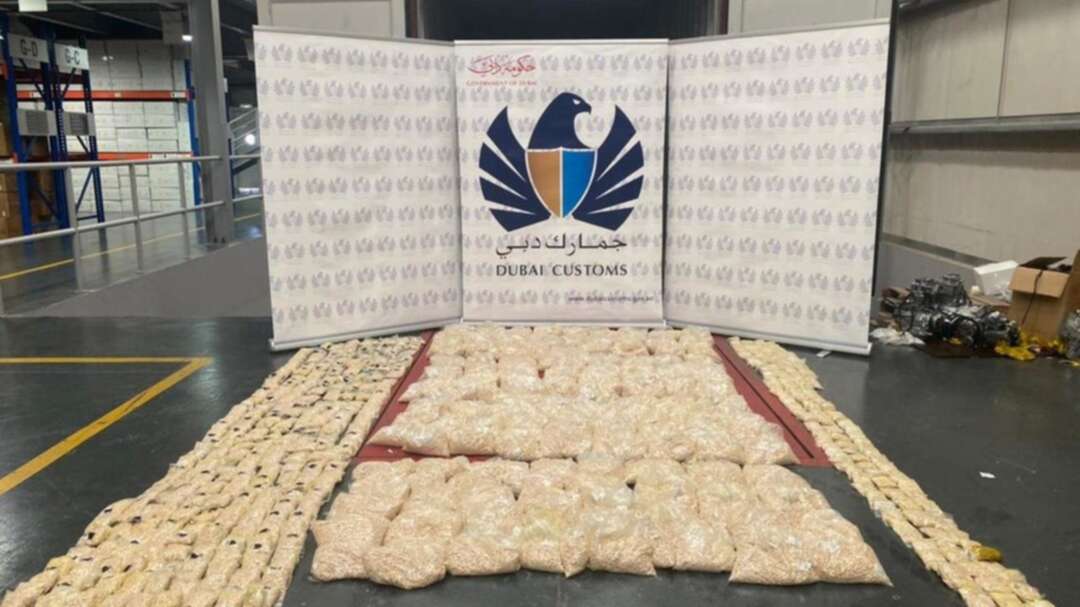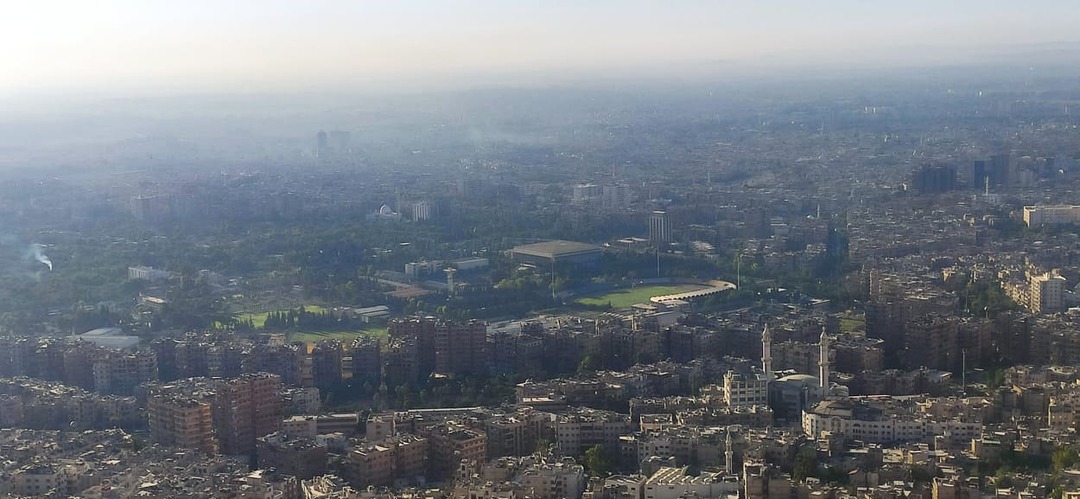-
Captagon trade a rapidly growing illicit economy in Middle East and Mediterranean; Syria is the main producer

The Arab News reported, citing the AFP, a report said that trade in the amphetamine-type stimulant captagon in the Middle East grew exponentially in 2021 to top $5 billion, posing an increasing health and security risk to the region.
Research by the New Lines Institute, to be released Tuesday and seen by AFP, paints an alarming picture of the impact booming captagon production is having on the region.
The report, authored by analysts Caroline Rose and Alexander Soderholm, said: “The captagon trade is a rapidly growing illicit economy in the Middle East and Mediterranean." It said: “Based on large-scale seizures alone, the potential value of the retail trade in 2021 is estimated at over $5.7 billion."
The figure is a jump from an estimate of around $3.5 billion in 2020 and only reflects the retail value of the pills seized last year, which the think-tank tabulated at more than 420 million.

Many countries have not divulged aggregated seizure figures for the drug, of which Syria is the main producer and Saudi Arabia the main consumer.
According to the Arab News, the real amount of seized pills is likely higher and still only a fraction of the total amount of captagon produced.
It said, an AFP tally shows seizures continuing at a slightly slower rate than last year, mostly because a record shipment of 94 million pills was intercepted in Malaysia in March 2021.
Malaysia seizes $1.26 bln in drugs bust in cooperation with Saudi Arabia
Captagon was the trade name of a drug initially patented in Germany in the early 1960s that contained an amphetamine-type stimulant called fenethylline used to treat attention deficit and narcolepsy among other conditions.
It was later banned and became an illicit drug almost exclusively produced and consumed in the Middle East.
Captagon is now a brand name, with its trademark logo sporting two interlocked “Cs,” or crescents, embossed on each tablet, for a drug that often contains little or no fenethylline and is close to what is known in other countries as “speed.”
Lebanon seizes nearly nine million Captagon tablets in fake oranges
New Lines said its changing formula made attempts at cracking down on the booming trade harder.
It said: “One of the most challenging aspects in tracking the patterns of captagon production, smuggling and use is assessing its precursors and constantly shifting chemical formula."
The market value of the captagon produced in Syria now far outstrips legal exports and has resulted in the country being branded a “narco-state.”
The New Lines report further documents how members of President Bashar Assad’s family and high-ranking members of his regime are involved in captagon manufacturing and smuggling.
Saudi Arabia's Customs Stops Smuggling Over 4.5 Million Pills Of Captagon
The report said that stifled by international sanctions slapped on the regime in the course of Syria’s 11-year-old war, the government is “using the trade as a means for political and economic survival."
Some captagon production facilities, albeit smaller ones, are located in Lebanon, already the world’s third-largest hashish exporter after Morocco and Afghanistan.
The report said: “Lebanon has served as an extension of the Syrian captagon trade, a key transit point for captagon flows."
It said that Syrian state figures are benefitting from various allied militias and proxies in organizing the trade, including Lebanon’s Hezbollah movement.
Saudi authorities seize 451,807 drug tablets coming from Hezbollah in Lebanon
Some of the Shiite group’s main areas of influence include a significant stretch of the Syrian-Lebanese border, giving it a key role in regional trafficking.
New Lines said: “With its history of controlling Lebanese cannabis production and smuggling out of the southern Bekaa Valley, Hezbollah has seemingly served an important supporting role in the captagon trade."
Captagon has so far only been consumed on a very small scale in Europe but what has become Syria’s biggest export has the potential to spread beyond the Middle East. Caroline Rose told AFP: “Its spectrum of effects and reasons for use give it a very broad appeal."
Dubai Customs seizes 3 mln Captagon pills at Jebel Ali Port
Sold for less than one dollar in parts of Syria to consumers who primarily use it to stay awake and work several jobs, a tablet can fetch more than $20 in Saudi Arabia where is it prized as a recreational drug.
Rose said: “It could ultimately penetrate the European market and carve out its own niche."
Source: arabnews
You May Also Like
Popular Posts
Caricature
BENEFIT Sponsors BuildHer...
- April 23, 2025
BENEFIT, the Kingdom’s innovator and leading company in Fintech and electronic financial transactions service, has sponsored the BuildHer CityHack 2025 Hackathon, a two-day event spearheaded by the College of Engineering and Technology at the Royal University for Women (RUW).
Aimed at secondary school students, the event brought together a distinguished group of academic professionals and technology experts to mentor and inspire young participants.
More than 100 high school students from across the Kingdom of Bahrain took part in the hackathon, which featured an intensive programme of training workshops and hands-on sessions. These activities were tailored to enhance participants’ critical thinking, collaborative problem-solving, and team-building capabilities, while also encouraging the development of practical and sustainable solutions to contemporary challenges using modern technological tools.
BENEFIT’s Chief Executive Mr. Abdulwahed AlJanahi, commented: “Our support for this educational hackathon reflects our long-term strategic vision to nurture the talents of emerging national youth and empower the next generation of accomplished female leaders in technology. By fostering creativity and innovation, we aim to contribute meaningfully to Bahrain’s comprehensive development goals and align with the aspirations outlined in the Kingdom’s Vision 2030—an ambition in which BENEFIT plays a central role.”
Professor Riyadh Yousif Hamzah, President of the Royal University for Women, commented: “This initiative reflects our commitment to advancing women in STEM fields. We're cultivating a generation of creative, solution-driven female leaders who will drive national development. Our partnership with BENEFIT exemplifies the powerful synergy between academia and private sector in supporting educational innovation.”
Hanan Abdulla Hasan, Senior Manager, PR & Communication at BENEFIT, said: “We are honoured to collaborate with RUW in supporting this remarkable technology-focused event. It highlights our commitment to social responsibility, and our ongoing efforts to enhance the digital and innovation capabilities of young Bahraini women and foster their ability to harness technological tools in the service of a smarter, more sustainable future.”
For his part, Dr. Humam ElAgha, Acting Dean of the College of Engineering and Technology at the University, said: “BuildHer CityHack 2025 embodies our hands-on approach to education. By tackling real-world problems through creative thinking and sustainable solutions, we're preparing women to thrive in the knowledge economy – a cornerstone of the University's vision.”
opinion
Report
ads
Newsletter
Subscribe to our mailing list to get the new updates!






















